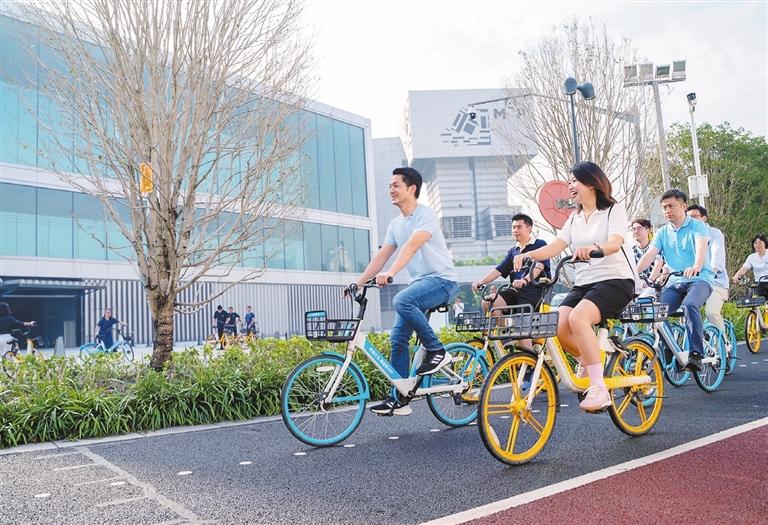
FOR Yang Mengming, incorporating eco-friendly practices like using electric buses, avoiding disposable chopsticks, and carrying her own coffee cup has become second nature. This 30-year-old professional in Shenzhen not only drives a new energy vehicle (NEV) but also gravitates towards low-carbon labeled products, even if they come at a slightly higher cost. “Each person can play a role in environmental preservation within their means, leading to collective benefits in the long term,” said the 30-year-old white-collar worker in Shenzhen. She represents a growing cohort of young Chinese embracing a low-carbon lifestyle, spurred by the country’s efforts to achieve its “dual carbon goals,” which heighten environmental consciousness and foster a burgeoning market for sustainable goods. Wang Jingjun, a 31-year-old postdoctoral scholar from Huazhong University of Science and Technology in Wuhan, Hubei Province, exemplifies this shift by toting a reusable bag to curb plastic usage and actively seeking out products tagged with a low-carbon label while shopping. “Over the years, I’ve noticed a surge in low-carbon alternatives across various product categories, from paper goods to electronics,” Wang said, lauding this trend. The enthusiasm for eco-friendly choices extends to local businesses, with some in Shenzhen like Grandsun Electronic Co., Ltd. and Yuepeng Gold striving for zero-carbon certifications by employing recyclable materials and energy-efficient practices. Yuepeng Gold last year released its first zero-carbon gold bar product made of recycled gold, which was sold out within minutes during China’s mid-year online “June 18” shopping festival, according to the company. The market for carbon-neutral products in China is gaining momentum, observed Mickael Lefebvre, chief technology officer of Grandsun. On Monday the company released a zero-carbon open-ear headphone, the Cleer ARC 3. With China leading in NEV sales and a growing emphasis on greener technology, the shift towards carbon neutrality appears natural. “If consumers have already bought electric cars and fridges that emit less, then it’s not a big leap for them to think their other devices need to have smaller carbon footprints,” Lefebvre said. Governmental support, corporate innovation, and public engagement are crucial factors propelling the shift towards sustainable practices, commented Jiang Zechuan of the Shenzhen ecology and environment bureau. Individuals like Zhao Chengzhu from Beijing are embracing eco-friendly habits like biking for short distances, not only for convenience but also to reduce their carbon footprint in bustling urban settings. Hellobike, one of the leading bike-sharing companies in China, said its bike-sharing service covers more than 400 cities in China, with registered users surpassing 600 million. The company has accumulated over 34.8 billion kilometers in cycling distance, equivalent to reducing carbon emissions by 1.17 million tons, according to the company’s website. The enthusiasm for low-carbon living is especially pronounced among the younger demographic. According to a 2020 survey by China Youth Climate Action Network, 95% of interviewed college students aged between 18 and 24 endorsed a low-carbon lifestyle, while 62% of them were willing to pay a higher price for eco-friendly products or lifestyles. (Xinhua) | 
